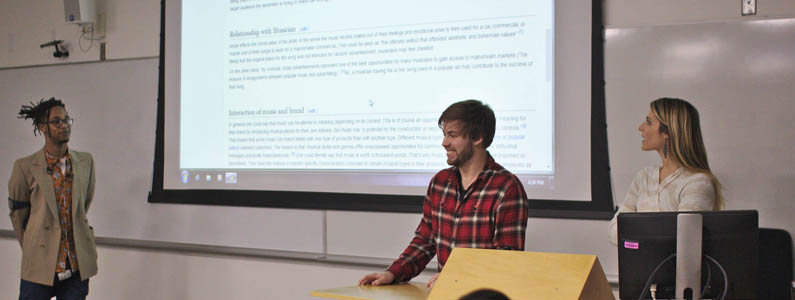Presentations are tedious – every small detail matters. The art of giving presentations may be different, depending on the class. A person studying business may be able to offer a PowerPoint presentation to show the world’s market fluctuations over the last 30 years, while a person studying Spanish may need to talk in front of the class for an hour – or on Skype.
Approaching every presentation is the same, although the amount of detail needed will vary from course to course and assignment to assignment.
When trying to master your presentation skills, there is a lot that you can do to perfect every presentation and get over the jitters you may have.
Understand the Presentation Requirements
 The presentation will have requirements, and if you don’t know the requirements, you’ll be wasting time and may miss the scope of the assignment. Before you start your presentation, do the following:
The presentation will have requirements, and if you don’t know the requirements, you’ll be wasting time and may miss the scope of the assignment. Before you start your presentation, do the following:
- Read the assignment in its entirety
- Mark down how long the presentation should be
- Make note of who the audience will be
Your audience will dictate how you write your presentation script, and it will play a role in how you formulate your entire presentation.
Prepare Your Script
If you don’t like writing, think of a script as a way to elaborate your sentences when talking to a friend. When you write, it’s essential to leave your emotions out of it, and write with confidence – no one is watching you just yet.
When writing your presentation, you’ll want to incorporate the following:
- Pauses that will be taken for emphasis
- Words that you find difficult to pronounce
- Words that should have more emphasis when spoken
- Highlight key points
You may not be able to confidently speak in front of a large group of people, but if you make these small tweaks during the preparation phase, you’ll be able to gain confidence before giving your presentation.
Practice Your Script
People laugh when they hear about people talking to themselves in the mirror, practicing what they’ll say in a presentation. But these are the people that have the best presentation skills.
Think of this as preparing for an acting gig. When you’re in front of the mirror, pay attention to:
- Facial expressions
- Emotional expressions
And continue to practice your speech – recording it and listening to it multiple times.
Listen to the speech and make changes as necessary until you’re happy with the way you gave the presentation to yourself before going to give your presentation to others. Practice makes perfect.

